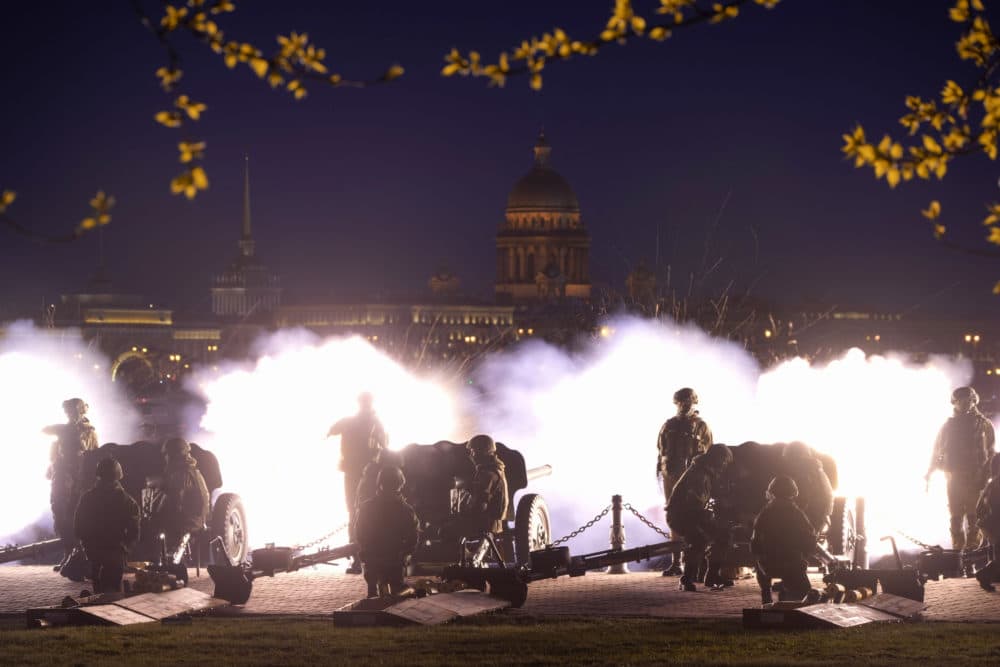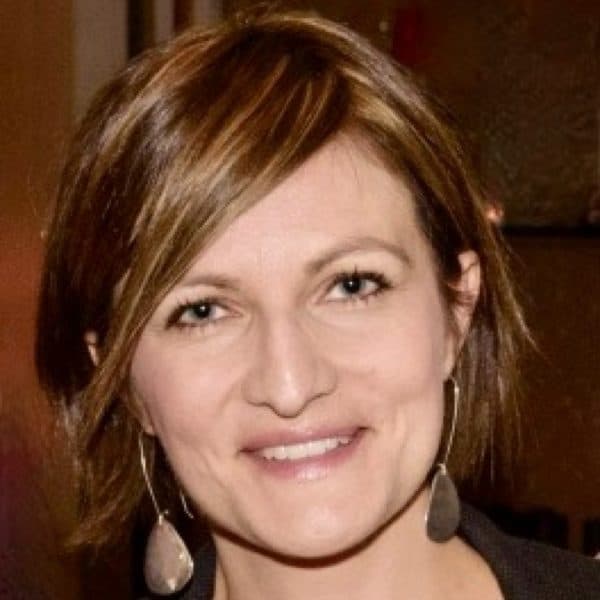Advertisement
Commentary
Why people in my native Russia aren't protesting the attacks on Ukraine

At last month's White House Correspondents Dinner, President Biden passed the mic to Trevor Noah, quipping, “You get to roast the president of the United States — and unlike in Moscow, you won’t go to jail!”
I laughed, which felt both wrong and cathartic after another week of worrying about friends and family in Moscow. No, the threats to Russians cannot be compared to what Putin has imposed on Ukraine. But I worry because an antidote to Putin’s poison is mass demand for truth, and much of Russia seems either vocally pro-Putin or silent.
When I call Moscow, my friends and family are split. Some say they don’t watch the news and that everything is fine. Some sing Putin’s praises. Some admit that the situation is horrific — but what can they do? Where can they go? Some focus on the weather, saying they’re “waiting for a thaw” — and I wonder: Are we talking about springtime flowers or that historic Thaw, when censorship waned and prisoners were released from Stalin’s Gulag? Are they waiting for the release of Russia’s poisoned, imprisoned opposition leader, Alexei Navalny?
Or do they fear the lines are tapped, and that I ... will lead them into dangerous territory?
Or do they fear the lines are tapped, and that I — with my overly direct, American questions — will lead them into dangerous territory?
When I was 10 and new to America, I remember studying the strange concept of freedom of speech, and the odd sensation of being encouraged to speak and write my mind. It took me years to tell my new American friends the story of how my father’s mother had denounced my mother to the KGB, accusing her of being an American spy. How I probably still had a mother only because the young KGB agent found her pretty and showed her the letter.
One of the last times I visited Moscow was in 2005, to write my master’s thesis on post-Soviet advertising. Propaganda seemed a relic of the past, replaced by Western-style ads. There was optimism in the air. Matryoshka nesting dolls painted with caricatures of Russia’s leaders for sale. I interviewed Russians not about government agendas but about billboards.
Today, studying ads feels ridiculous. Instead, I’ve been comparing what I see in Boston to what many Russians (especially those who don’t actively seek out the truth via VPN access) are fed by state-run media.
Advertisement
Russians are bombarded with so much propaganda that for many, it’s drowned out the bombardment of their friends and relatives in Ukraine. It's not an excuse, but the reality of what needs to be overcome.
Russians are bombarded with so much propaganda that for many, it’s drowned out the bombardment of their friends and relatives in Ukraine.
A brief comparison: In Boston, I read in The New York Times,
“As Mariupol Is Bombed and Besieged, Those Trapped Fight to Survive: Mariupol … has been under … relentless bombardment from the Russian forces ...”
But my counterpart in Russia is likely to see on 1tv.ru:
“The crimes of the Kiev regime against humanity will not go unpunished: Neo-Nazis continue to intimidate the inhabitants of Mariupol, saying that they are allegedly being fired upon by our military. National battalions arrange provocations to accuse the Russian army.”
I read a critique of the Russian Orthodox Church becoming bedfellows with the Kremlin in The Guardian.
A Russian is more likely to learn, on News.ru:
“The Russian Orthodox Church urged Russians to rally around the President of Russia,” and that the church sees bloodshed as inevitable.
While the West mourns the loss of innocent Ukrainian lives, Putin makes heroes out of their assassins.
In early March, the West heard that Russia and Ukraine agreed to a ceasefire to evacuate Mariupol and Volnovakha, with Russia violating the agreement.
But on May 9 — Russia’s Victory Day over Nazi Germany — Kanal 1 featured Putin awarding a medal to the father of a deceased Russian commander.
“He died a hero, protecting … the bodies of women and children, the bodies of his countrymen,” Putin says, referring to the fact that Ukraine’s Donetsk region broke away as a separatist, pro-Russian republic in 2014.
While the West mourns the loss of innocent Ukrainian lives, Putin makes heroes out of their assassins.
How do we know what’s true, when we sit 5,000 miles away from the “special military operation in Ukraine” (call it a war and hello, prison)?
Because independent media is now a foreign dream for Russians and a nightmare for the Kremlin. Because of how few free journalists are left in Russia. The Global Impunity Index of journalist murders ranks Russia 10th, behind Somalia, Syria, Iraq, South Sudan, Afghanistan, Mexico, Philippines, Brazil and Pakistan.
A tricky thing: Many Russian news stories begin like Western ones, with roots in reality, but reach entirely different conclusions.
And that’s the point, isn’t it? Propaganda works by weaving strands of lies into a cloth of generally accepted truth. When you get confused and turn to the TV (many Russians’ main source of information) and get all your questions answered by a single, clear narrative … well, you’re only human. Comrades seek clarity. Comrades seek comfort. Propaganda 101.
In advertising, the "effective frequency" principle suggests that a consumer needs to see an ad at least three times within a purchasing cycle to be primed for purchase. Three times. What mere mortal can resist when the product (Putin’s agenda) is promoted 24/7?
Our understanding of advertising tells us what we need to do. The opposition's task, in Russia or in diaspora, is to speak and write and sing in a chorus at least three times louder than the Kremlin. Because as the wife of another opposition leader, Vladimir Kara-Murza, said, “They can’t imprison everybody.”
Unfortunately, not all Russians believe that. I asked an acquaintance who was involved with Navalny’s opposition movement (until mass arrests began) how he sees the breakdown between Russians who believe Putin, and those who only say so because they’re afraid. “Everyone is afraid,” he said.
After roasting Biden, Trevor Noah got serious. “In America, you have the power to seek the truth and speak the truth,” he said, “even if it makes people in power uncomfortable. Do you understand what a blessing that is?”
A blessing that’s also an obligation to advertise the truth relentlessly, praying that the pen ends up being mightier than the sword.
